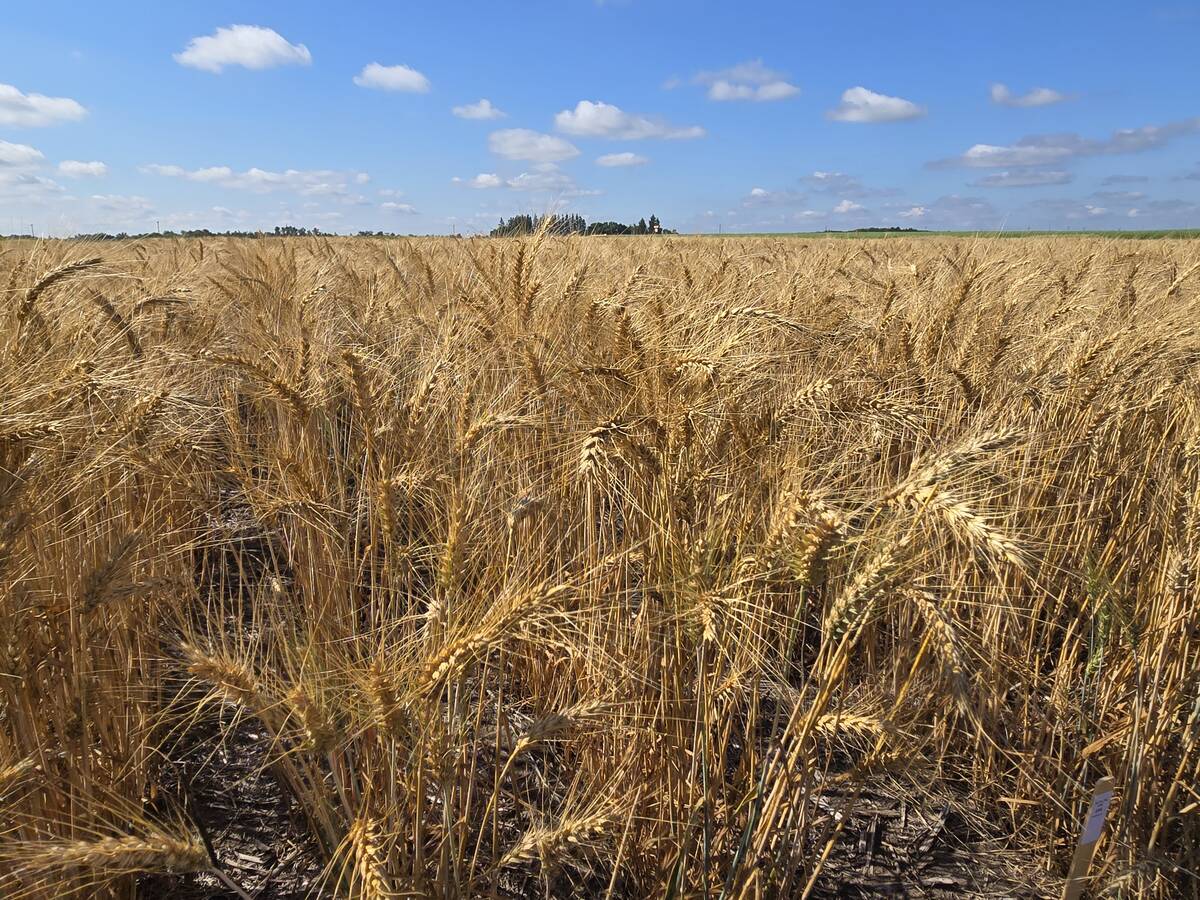The operation of a major canola oil exporter at the port of Vancouver is in jeopardy without a lease extension, says the company and other agricultural interests.
West Coast Reduction, which is also a large renderer from animal processing on the Prairies and a supplier to the biofuels industry, sits on a six-acre parcel on the south shore that the port has eyed for a possible container terminal.
Barry Glotman, president and chief executive officer, said the third-generation, decades-old family business is at risk because the port is prioritizing containers over food.
Read Also

Fall rye hits record high in Manitoba
Winter cereals 2025: More Manitoba fields grew fall rye in 2025 than ever before, but winter wheat slipped and, while spring stand survival was good, drought took its toll
The issue is that the Roberts Bank Terminal 2 project, which is supposed to be a large container terminal in Delta, has been delayed for years and the port is looking at contingency plans.
“If they don’t get RBT2 the port thinks they’re going to build a super terminal on the south shore where we’re all located and displace agriculture,” Glotman said.
West Coast Reduction has been unable to extend its lease, which expires in 2026. Glotman said he doesn’t know where the company could relocate and has asked for a five-year extension so it can make contingency plans.
“The port has told us they are not prepared to renew our lease. They might give us a decision in 2023-24 when they know what’s happening with RBT2 but that’s too late because we have $250 million worth of infrastructure at the port of Vancouver,” said Glotman.
“By saying no today means that we’re not going to be in business. So it’s critical today even though there’s five years left.”
West Coast Reduction has facilities in Saskatoon, Edmonton, Calgary, Lethbridge, and the British Columbia communities of Nanaimo and Vancouver as well as a bread recycling facility in Chilliwack.
It picks up byproducts from slaughter facilities and produces proteins and fats.
The proteins become ingredients in animal feed or fertilizer. The fats go to Vancouver for export and biofuel feedstock.
“Canada needs to meet its low carbon mandates, so the big oil companies need to buy low carbon intensity feedstocks, which are basically recycled products, which are animal fats and restaurant grease, and then they basically produce biofuel,” said Glotman.
The company ships more than 50 percent of the Canadian canola oil bound for Asia and 20 percent of national canola oil exports.
“The port will say it’s a commercial issue between two businesses. It’s not,” Glotman said. “We are the only facility that can provide those services and the marketplace. That’s why it’s so critical.”
Ian Thomson, president of Advanced Biofuels Canada, agreed the company is a crucial link in the biofuel supply chain. It is the largest biofuel feedstock supplier in Western Canada, supplying members of Advanced Biofuels Canada.
“Getting tidewater access for shipping things out of the port is really challenging,” he said. “If we lose that facility’s critical tidewater location in the port, it’s going to set our industry back as far as access to feedstock and also the ability to get biofuels out.”
Thomson said he’d like to see the facility expand because demand is substantial.
“We’re hoping that the port can resolve this,” Thomson said, adding the loss of the facility would be a backward step in combatting the effects of climate change.
The Sustainable Food Alliance of B.C., which represents poultry, egg, dairy, fish, beef, pork and canola producers, said Ottawa should intervene.
Ken Ingram, executive director, said members are concerned about the risk to B.C.’s food system. He said the services West Coast Reduction provides are key to sustainability.
“The board of the port should recognize this isn’t a simple lease agreement. It’s a policy issue that goes to the heart of the port’s mandate to service the Canadian economy,” he said.
Ingram also noted that people hear a lot about food waste but the recycling and rendering done by a company like West Coast Reduction means there is no pre-consumer waste.
In an emailed statement, the Vancouver Fraser Port Authority said it recognizes the role of agriculture and its top priority is to ensure trade moves efficiently through the port. Its mandate under federal legislation is to enable international trade.
The statement said container trade is a key focus because terminals are expected to run out of capacity as early as the mid-2020s.
The port also said the availability of industrial land is diminishing and that could lead to inefficient movement.
“As such, the port authority is looking at what uses are occupying the federal lands we manage to ensure those lands are being used for the primary benefit of enabling Canada’s trade,” it said.
Western grain companies have also criticized the port for hiking lease fees to help pay for a container port.
Glotman and others say it seems the port is placing containers above agriculture and food.
“It’s about co-existing along with agriculture, not to displace or put agriculture at risk, which is what they’re doing today,” Glotman said.
















